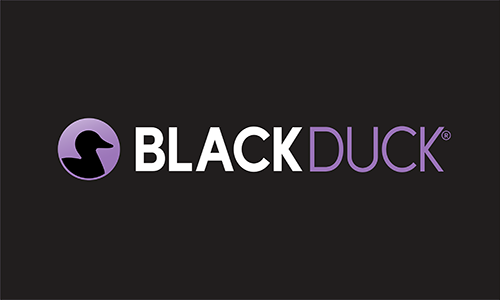In the fast-paced world of software development, open source dependencies are the building blocks that enable innovation and efficiency. But as we've seen time and again, they can also introduce significant risks if not properly managed. The recent supply chain attack on the npm registry, uncovered September 8, 2025, serves as a stark reminder of these vulnerabilities. Attackers compromised 18 widely used packages through a phishing campaign targeting open source project maintainers, and published malicious versions that could have impacted billions of downloads weekly.
What happened in the attack?
The incident involved popular utility libraries essential for tasks like color manipulation, debugging, and ANSI string handling in JavaScript applications. The compromised packages included
- ansi-regex (version 6.2.1)
- ansi-styles (6.2.2)
- backslash (0.2.1)
- chalk (5.6.1)
- chalk-template (1.1.1)
- color-convert (3.1.1)
- color-name (2.0.1)
- color-string (2.1.1)
- debug (4.4.2)
- has-ansi (6.0.1)
- is-arrayish (0.3.3)
- simple-swizzle (0.2.3)
- slice-ansi (7.1.1)
- strip-ansi (7.1.1)
- supports-color (10.2.1)
- supports-hyperlinks (4.1.1)
- wrap-ansi (9.0.1)
- And others like color (5.0.1)
These packages collectively boast over 2 billion weekly downloads, making this one of the largest supply chain incidents in npm's history. The attackers injected obfuscated JavaScript code designed to act as a cryptocurrency stealer. By wrapping browser APIs, the malware intercepted web3 transactions and silently replaced wallet addresses to redirect funds to the attacker's control.
Fortunately, the attack was detected quickly—thanks in part to a well-known obfuscator that made the malicious code easier to spot. Although the compromised versions were downloaded over 2.5 million times, the actual financial impact was minimal, with only around $500 in stolen cryptocurrency reported. Still, the potential for widespread damage was enormous, highlighting how a single point of failure in the open source ecosystem can ripple through countless applications.
The broader implications for your software supply chain
This event underscores a growing trend: Supply chain attacks are becoming more sophisticated and targeted. Phishing attacks on open source project maintainers to gain publishing rights bypasses traditional security measures, allowing bad actors to inject malware directly into trusted repositories. For organizations relying on npm packages—whether in front-end UI components or back-end services—the risks include data exposure, unauthorized access, and compromised production environments.
Without proper visibility into your dependencies, it's challenging to identify and respond to such threats. This is where a Software Bill of Materials (SBOM) becomes invaluable. An SBOM is a comprehensive inventory of all components in an application, including their versions, licenses, and potential vulnerabilities. Having this data at your fingertips makes it faster and easier to find and remediate any component that is discovered to be vulnerable or becomes compromised.
How Black Duck can help strengthen your defenses
At Black Duck, we've long advocated for proactive supply chain security, and tools like software composition analysis (SCA) are designed to address exactly these kinds of challenges. Black Duck® SCA offers complete visibility into your software dependencies, helping you detect malicious packages early in the development life cycle.
For instance, Black Duck SCA can identify anomalous or compromised components, such as those with obfuscated code or unexpected behaviors. And it can generate SBOMs in standardized formats like SPDX and CycloneDX, ensuring compliance with regulations and building trust with your stakeholders. In the wake of this npm attack, teams using Black Duck SCA could quickly audit their dependency manifests (e.g., package-lock.json) for the affected versions, purge any poisoned caches, and rebuild from safe sources.
Additionally, integrating Black Duck SCA into your CI/CD pipelines enables automated checks that block vulnerable or malicious dependencies before they reach production. This not only mitigates immediate risks but also fosters a secure-by-design culture.
Key takeaways and recommendations
As we reflect on this incident, here are some practical steps to enhance your supply chain security.
- Audit your dependencies regularly: Review lockfiles and registries for known compromised versions. Tools like Black Duck SCA make this process efficient and scalable.
- Implement multifactor authentication and access controls: Encourage open source project maintainers to use strong security practices to prevent phishing successes.
- Generate and share SBOMs: Make SBOMs a standard part of your release process to provide transparency and enable quick vulnerability assessments.
- Monitor for runtime anomalies: Look for unusual behaviors in logs, such as unexpected network activity or API manipulations.
- Stay informed and act swiftly: Subscribe to security alerts from sources like npm and integrate threat intelligence into your tools.
Supply chain attacks like this npm incident are a call to action for all of us in the software community. By prioritizing visibility, detection, and remediation, we can turn these challenges into opportunities to build more resilient applications. If you're looking to evaluate how Black Duck can fit into your security strategy, reach out to our team—we're here to help secure your software from the ground up.
Continue Reading
Three steps to ensuring the reliability and security of your C++ projects
Jun 03, 2025 | 3 min read
How to secure AI-generated code with DevSecOps best practices
May 08, 2025 | 3 min read
Security automation and integration can smooth AppSec friction
Jan 23, 2025 | 6 min read
Overcome AST noise to find and fix software vulnerabilities
Jan 06, 2025 | 6 min read
Artificial intelligence widens the gap between security and development
Dec 01, 2024 | 7 min read








